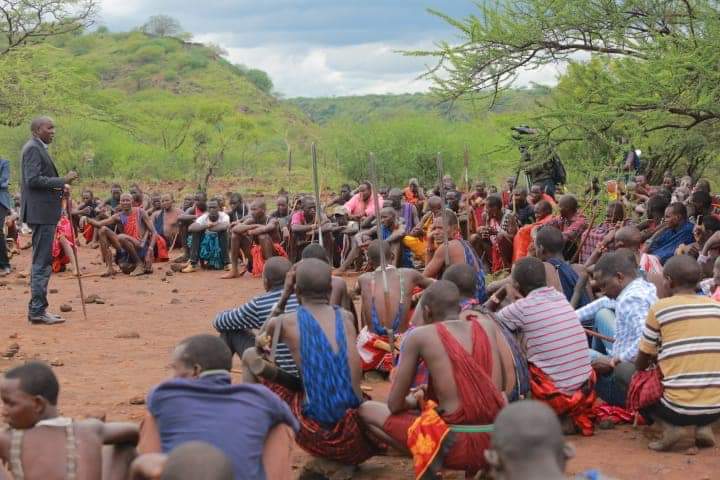The youth feel the government is either the one oppressing the Maa people or is aiding in injustices, citing the ongoing forcible evictions at Kedong Ranch
Raphael Kaai
As the whole country is thrown into a frenzy concerning the political and socio-economic future of Kenya, the youth appear to be the lot that has been left the most confused by these developments, despite constituting about 65 per cent of voters.
Although the youth are direct beneficiaries — or losers — of whatever changes the Constitution may undergo, many of them have no clue of who, how, when and what the Building Bridges Initiative (BBI) is all about. The same case applies to millions of other Kenyans, both literate and illiterate.
As the Kajiado County Youth Alliance (KCYA), we have tried to engage our members on this matter — concerning the importance, necessity, impact and understanding of the BBI report. We realized that the BBI has taken four different shapes among our youth: There are those who are sycophantically supporting the process simply because their political idols said they should; the opposite of these are those who are against it for no reason at all, just because their political gods don’t think the BBI is any good; there are also those who would opt to support it after their views have been included; and then there is that group who have never heard of it.
After analysing the four groups, we decided to engage them and prompt them to give their insights. Some of the suggestions for consideration were interesting. The youth of Kajiado County therefore recommended the following for consideration by the steering committee in the presentation document to be read at the forthcoming BBI rally in Narok stadium:
- That the current active youth associations that exist at county and sub-county levels, such as KCYA, KEYA, and KWEYA, be considered for budgeting in their respective areas of jurisdiction since the same organizations do more for the youth than any arm of the government.
- That a youth seat similar to the women rep position be introduced in all 47 counties to allow the youth have seamless representation and information-sharing.
- That the youth fund be handled separate from the women fund and that a 30 per cent share be set aside for the youth independent of the people with disabilities and women.
- That a clause be written to provide for the nomination of at least one youth in all government parastatal boards and all other public appointments.
- That the decision making committees in all government institutions must have at least one youth representative in the spirit of involving the direct beneficiaries of the future in making decisions.
- That the livestock economy be revamped through:
i) Revision of floor prices of meat at market; a suggestion Sh300 per kilo was made. To make this workable, all local market places should be equipped with weighing machines to eradicate exploitation of farmers by middlemen.
ii) A tannery industry be set up in all pastoralist counties to maximize on processing of livestock by-products, hence improving farmer incomes and at the same time creating jobs for the youth.
iii) Revamping of KMC to international standards to allow processing of meat for exportation.
iv) Controlling of markets through putting up barriers to discourage livestock dumping from other countries, e.g. Tanzania.
7. That the government come forth and immediately address the issue of historical land injustices in the Maa nation, given past and ongoing historical land injustices towards the Maasai people. The youth feel the government is either the one oppressing the Maa people or is aiding in injustices, citing the ongoing forcible evictions at Kedong Ranch. It is the duty of the government, they said, to revisit the agreement of 1911 between the British colonizers and the Maasai laibon (Olonana) and the resolutions of the meeting held at Lancaster house in 1962 so as to give the Maasai what belongs to them.
With these few points, the youth of Kajiado County have spoken their minds about the BBI, which is spearheaded in the Maasai counties by their Governor Joseph ole Lenku.
Raphael Kaai is Organizing Secretary of KCYA.
